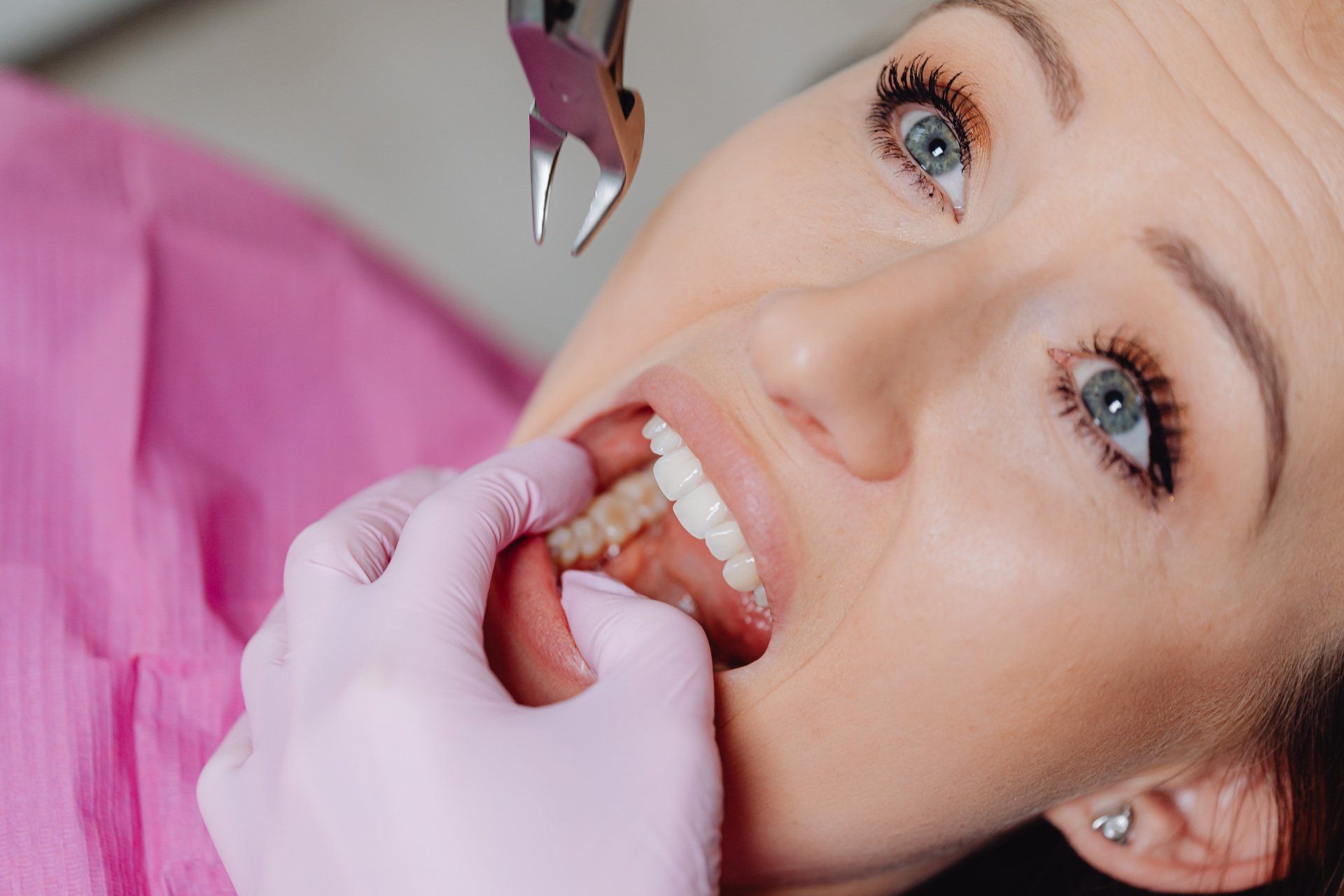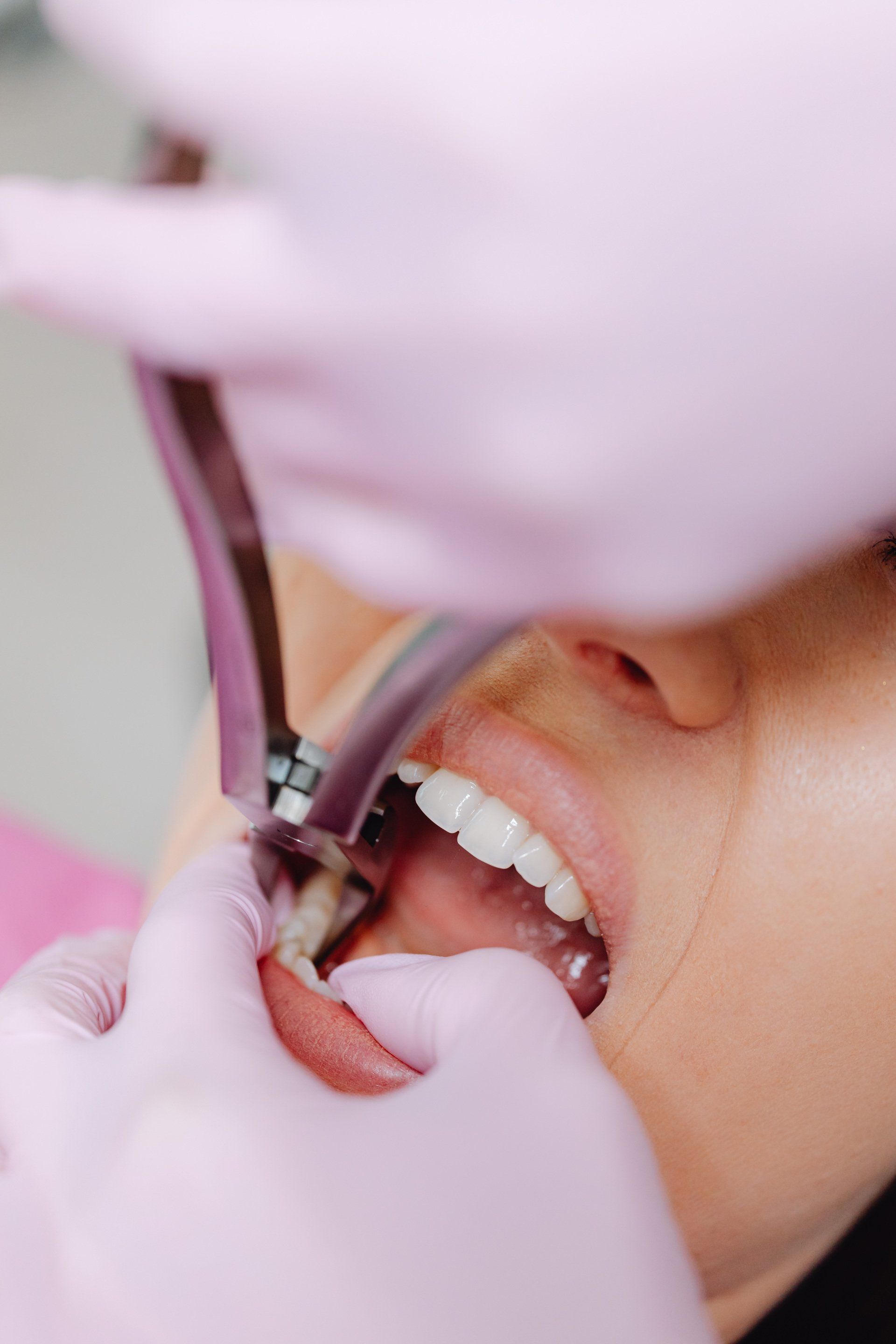Wisdom Tooth Extraction
Maintain the optimal level of your oral health with Tooth Extractions and Wisdom Tooth Removals
At Wexford Dental, we always want to help our patients maintain a healthy, natural smile. Unfortunately, this just is not always possible. If a tooth extraction is necessary in order to maintain your optimal level of oral heath, our team and knowledgeable dentists can help. At Wexford Dental we offer a wide range of restorative dentistry solutions, including tooth removal and tooth replacement options. If you are experiencing oral health concerns and you want to learn more regarding treatment options, please do not hesitate to contact our dental office to schedule a treatment consultation. We will do what we can to preserve your natural dental structures, but if removal is the right option, were happy to be able to offer you tooth extraction services as well.

Reasons for Tooth Extractions
Repairing damaged or decayed teeth is always the ideal option, but there are cases where removing these teeth is best for your overall oral health
List of Services
-
Damage or DecayList Item 1
Severe damage or decay that destroys too much dental structure to support a restoration
-
Impacted teethList Item 2
Those that are unable to properly erupt from the gum line
-
Lack of SpaceList Item 3
Wisdom teeth, third molars, are often extracted due to lack of space for these teeth within the smile
Maintain your overall oral health
Keep an eye on your wisdom teeth
It is very important to have a dentist monitor the development of your wisdom teeth, The best way for Wexford Dental to see how your wisdom teeth are developing is to look at x-rays. Through examining your x-rays our dentists will be able to see which stage of development they are in and where their roots run within our jaw. Our dentists will be able to asses the position of your third molars in relation to your surrounding teeth as well.
Some concerns may arise when wisdom teeth do not come in straight causing them to push against neighboring teeth. This can lead to damage of the teeth being pushed, or the wisdom tooth becoming stuck and unable to erupt. This is known as impaction. An impacted wisdom tooth usually will need to be extracted to reduce the potential for harming neighboring teeth and eliminate reoccurring pain.
Not all mouths are large enough to accommodate four wisdom teeth. If your mouth has no room for third molars to come in, they will erupt and grow anyway. You may notice your front teeth shifting or overlapping, as the giant molars push all your teeth closer together. To avoid this orthodontic issue of crowding, wisdom teeth can be extracted. If tooth movement has already occurred, braces may be worn after extraction.
At Wexford Dental our dentists will fully observe and monitor your wisdom teeth to ensure that they are developing correctly and if extraction is the right option we are here to provide you with the service.

Caring for your smile after tooth extraction
Following the tooth extraction, our dentist will provide you with specific at-home care instructions to help you make a full recovery with minimal discomfort. If your tooth needs to be replaced, we’ll begin this treatment process as soon as possible. During the first 48 hours after your tooth removal procedure, you should avoid irritating the extraction site. Use clean gauze to cover the socket and replace the gauze anytime it becomes saturated. You should also use ice packs at 20-minute intervals to reduce swelling and relieve pain. Consume only liquids for the first day after treatment and introduce soft foods and those that are more difficult to chew gradually as you feel comfortable. If you notice pain or sensitivity at the extraction site or you experience increased discomfort rather than diminished pain, call our team at Wexford Dental right away and someone will be more than happy to ensure everything is ok.
Are your wisdom teeth are causing you pain or you want to avoid future problems?
Book an appointment or give us a call to learn more about the next steps for tooth extractions and wisdom tooth removals


